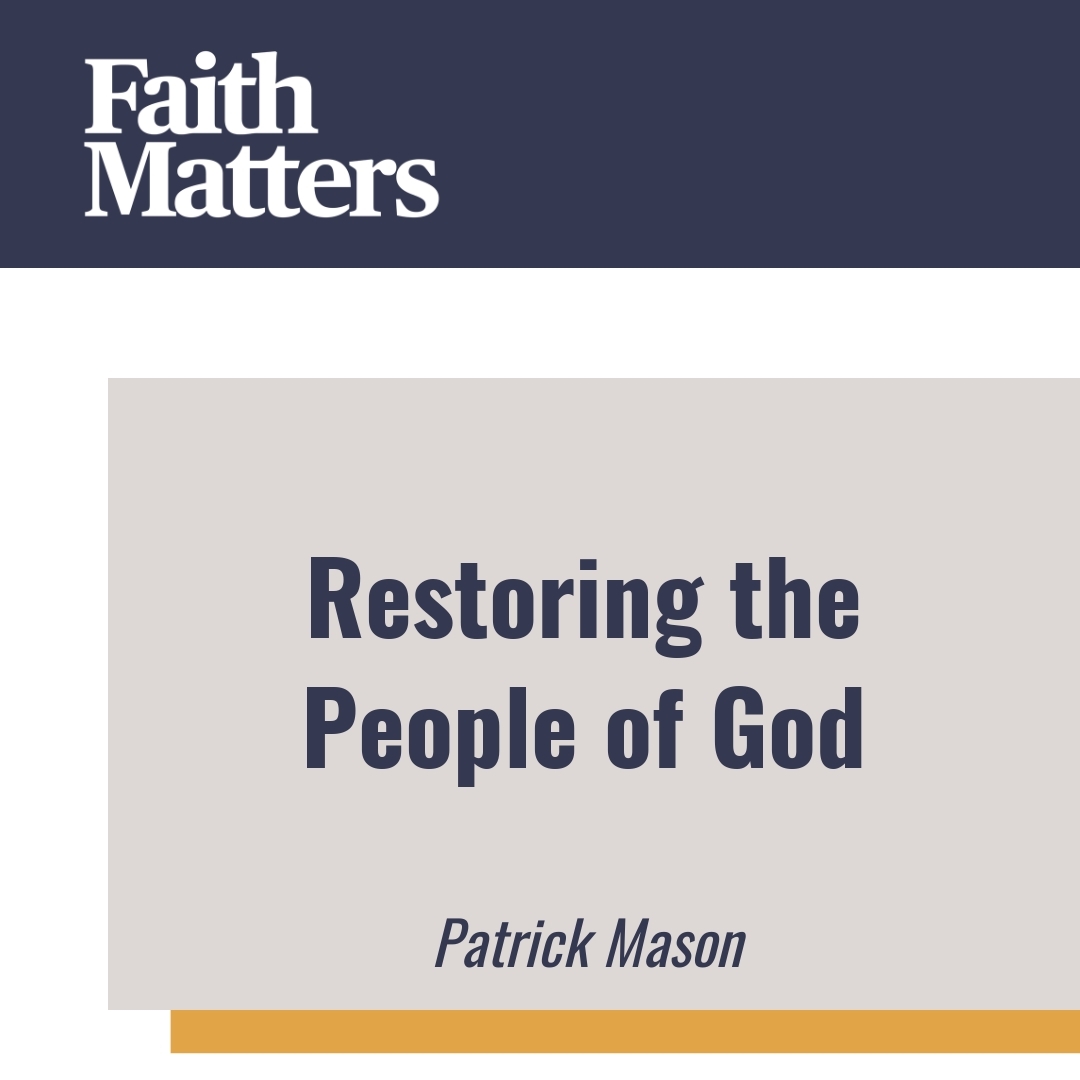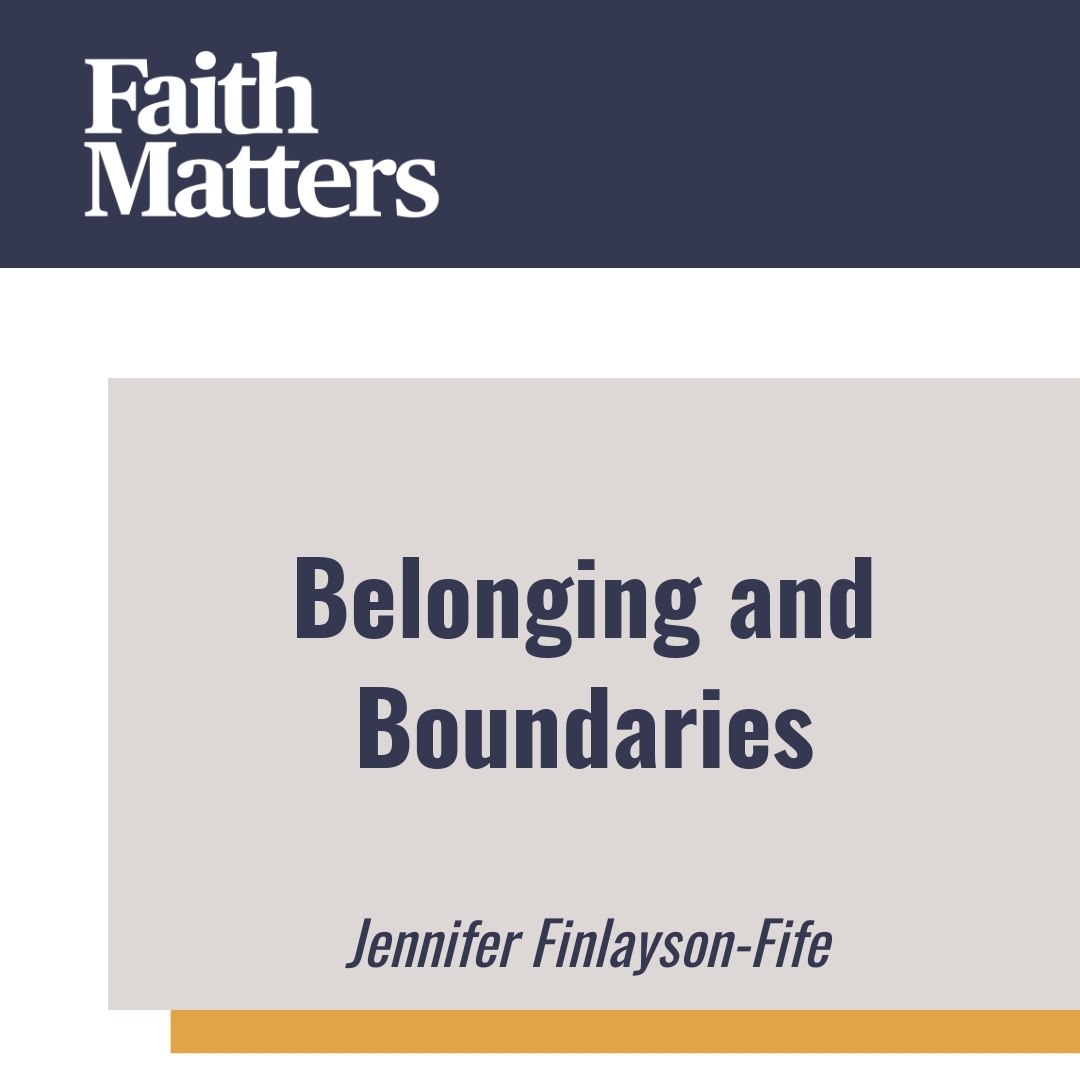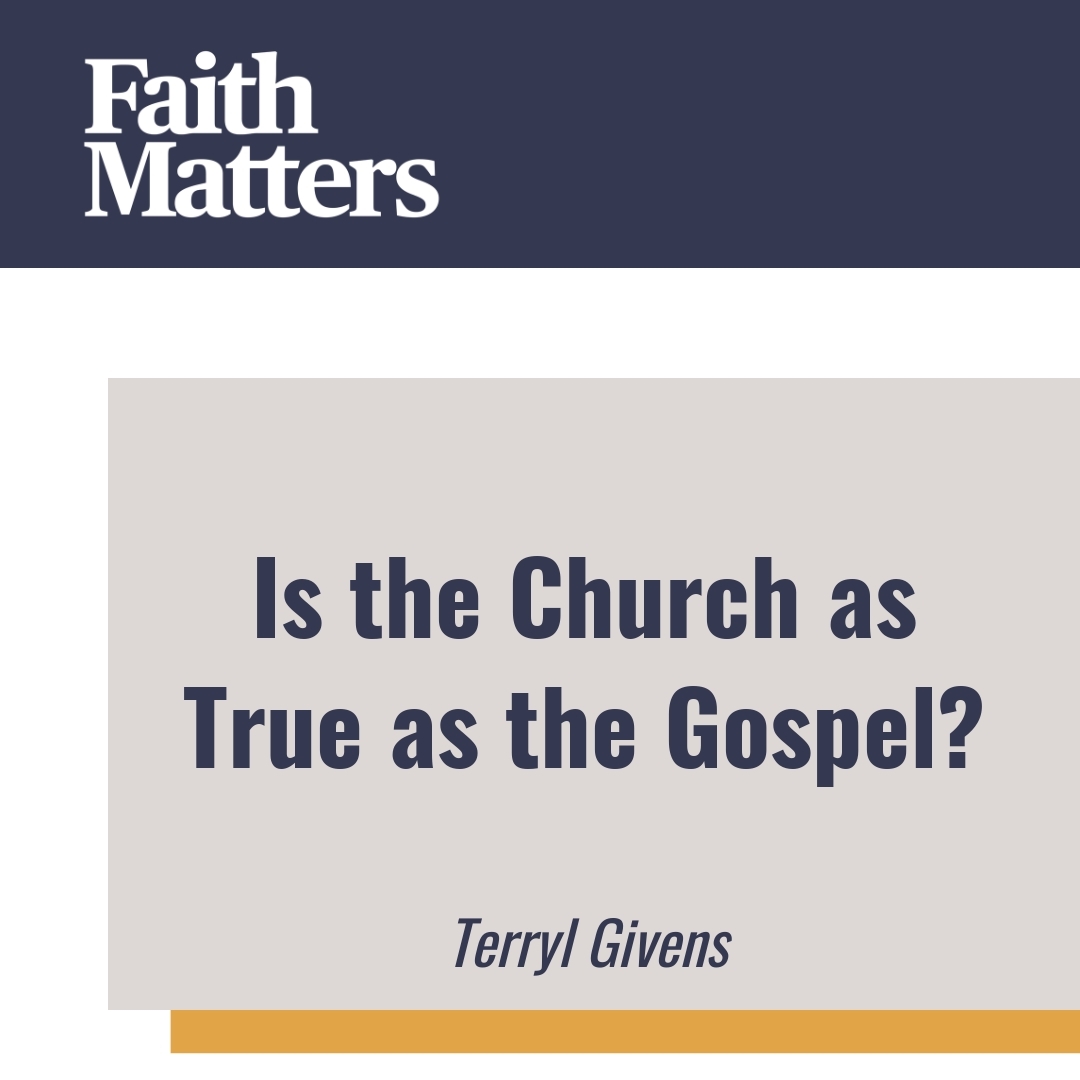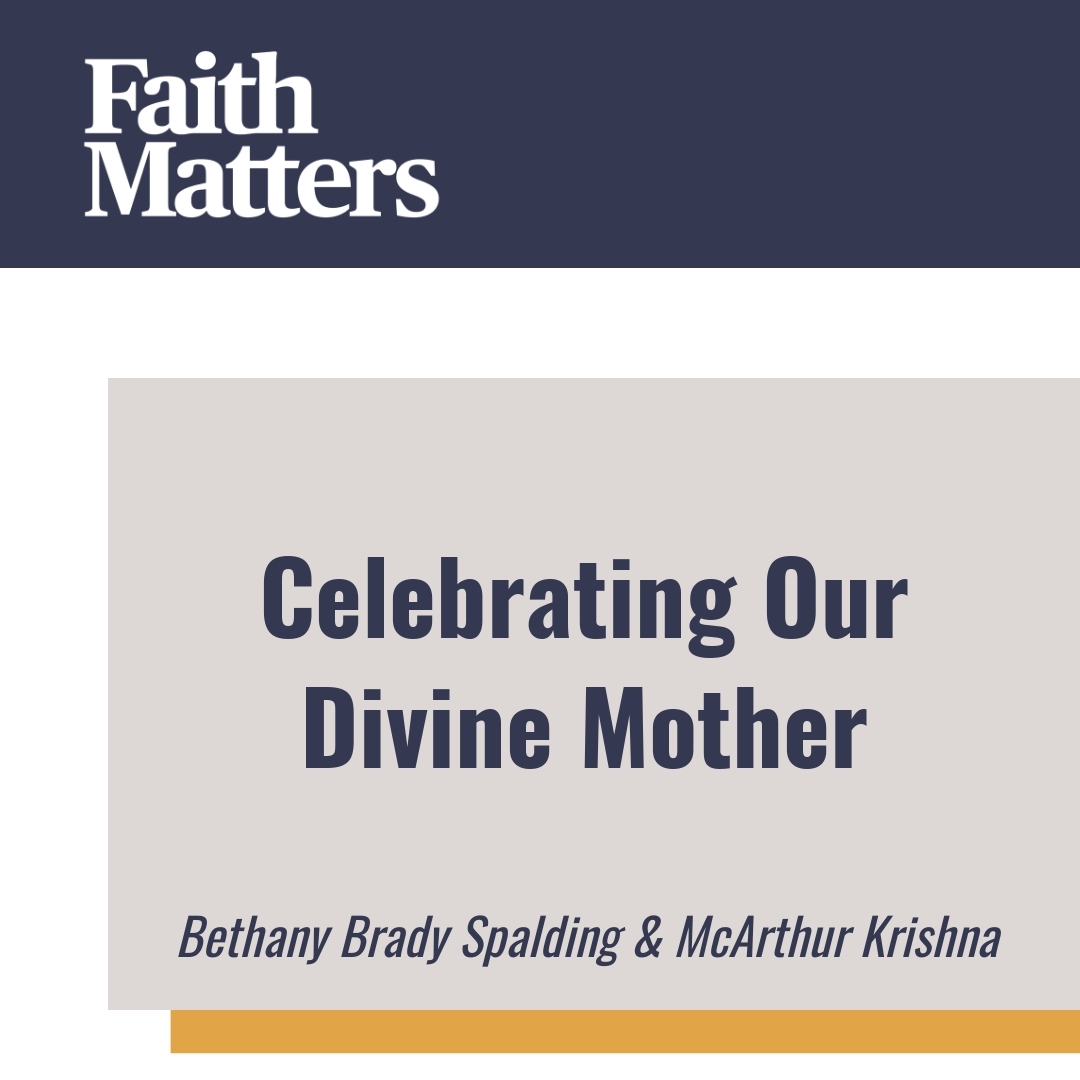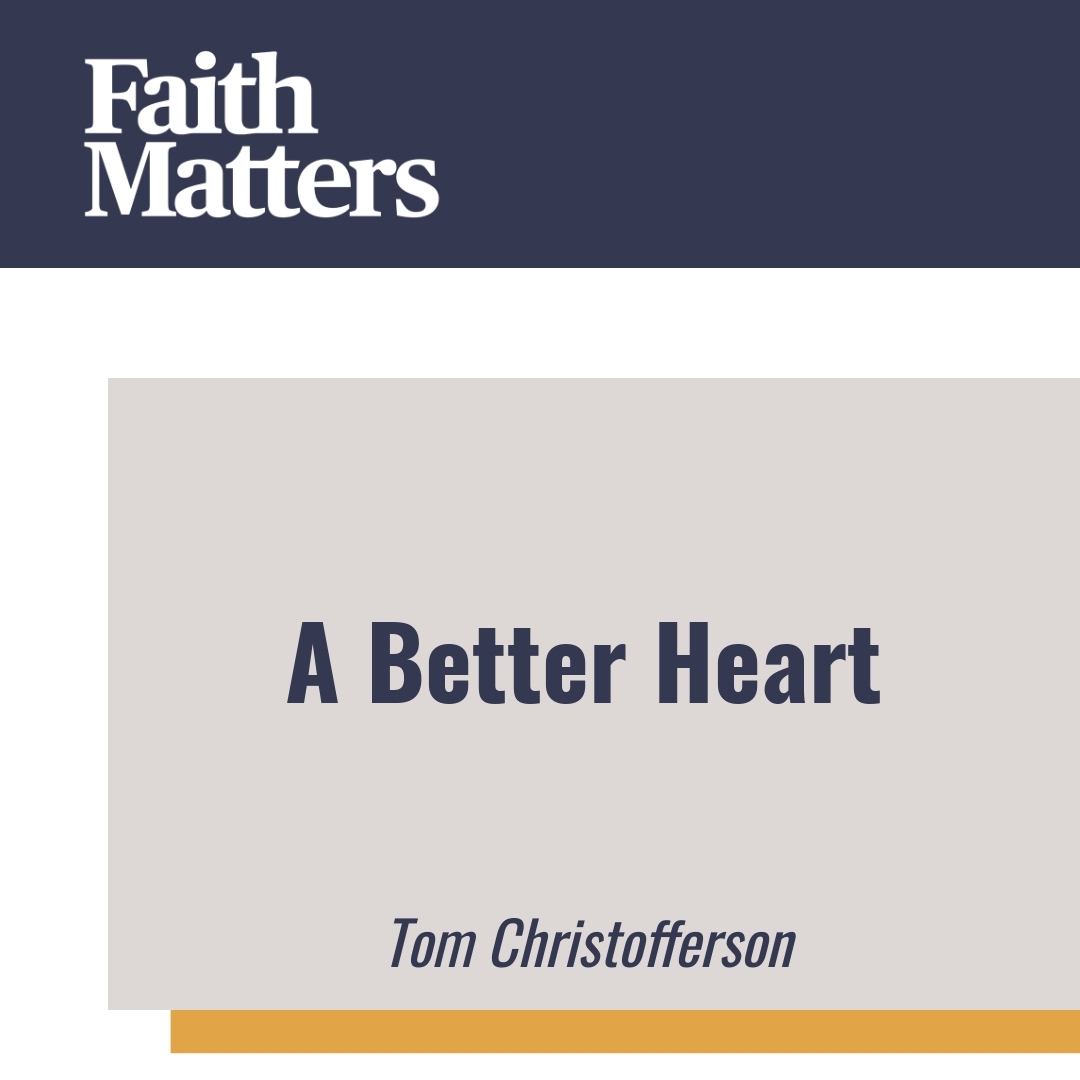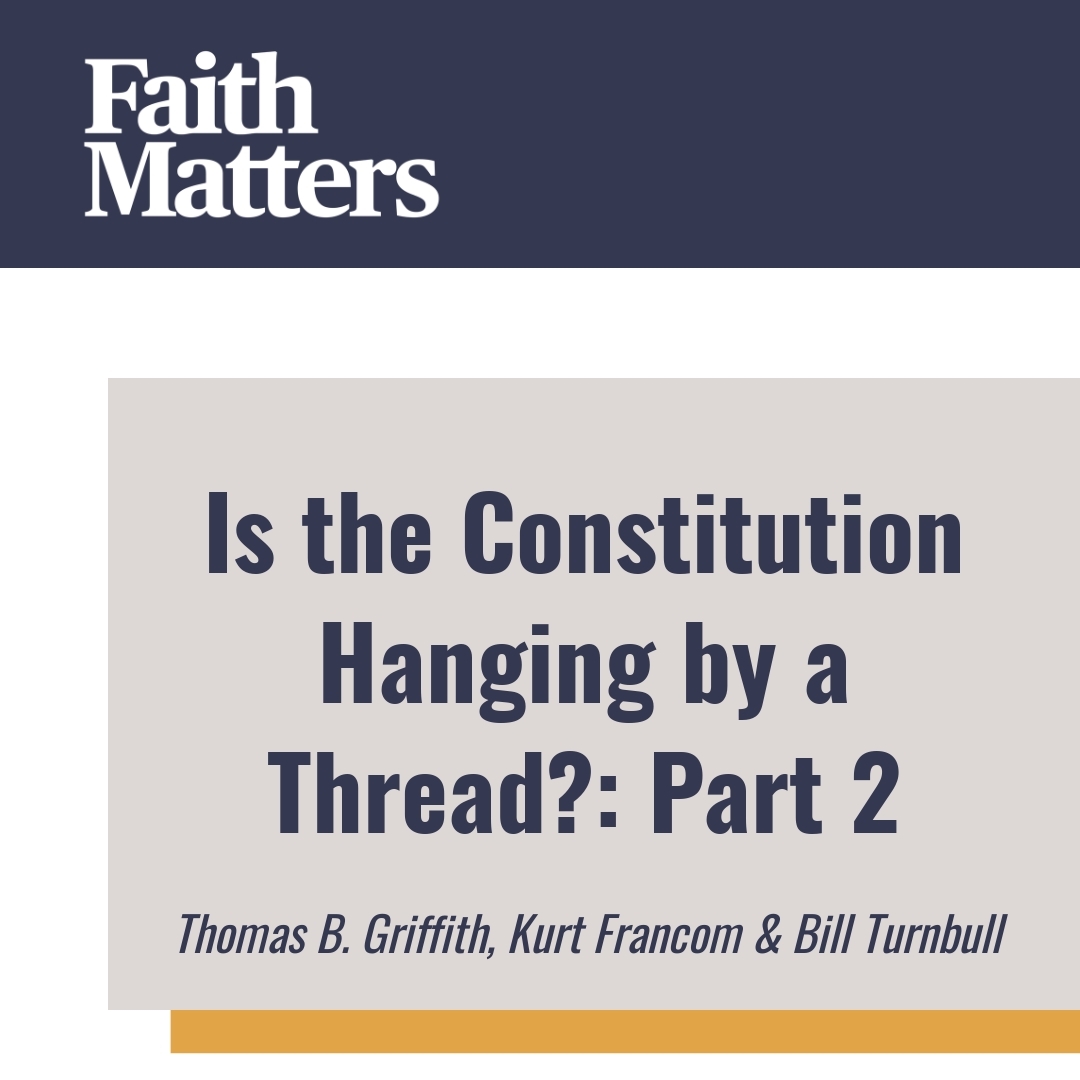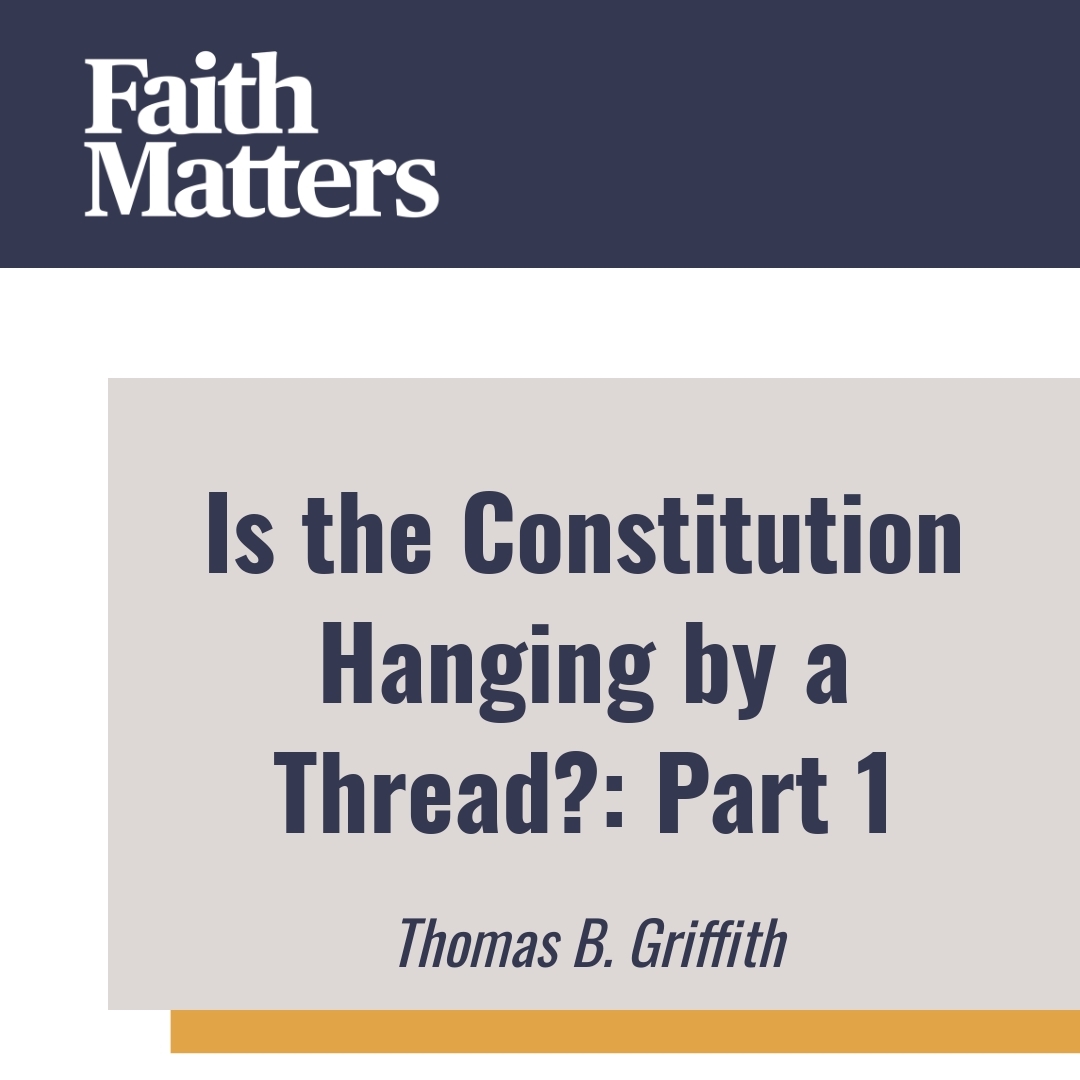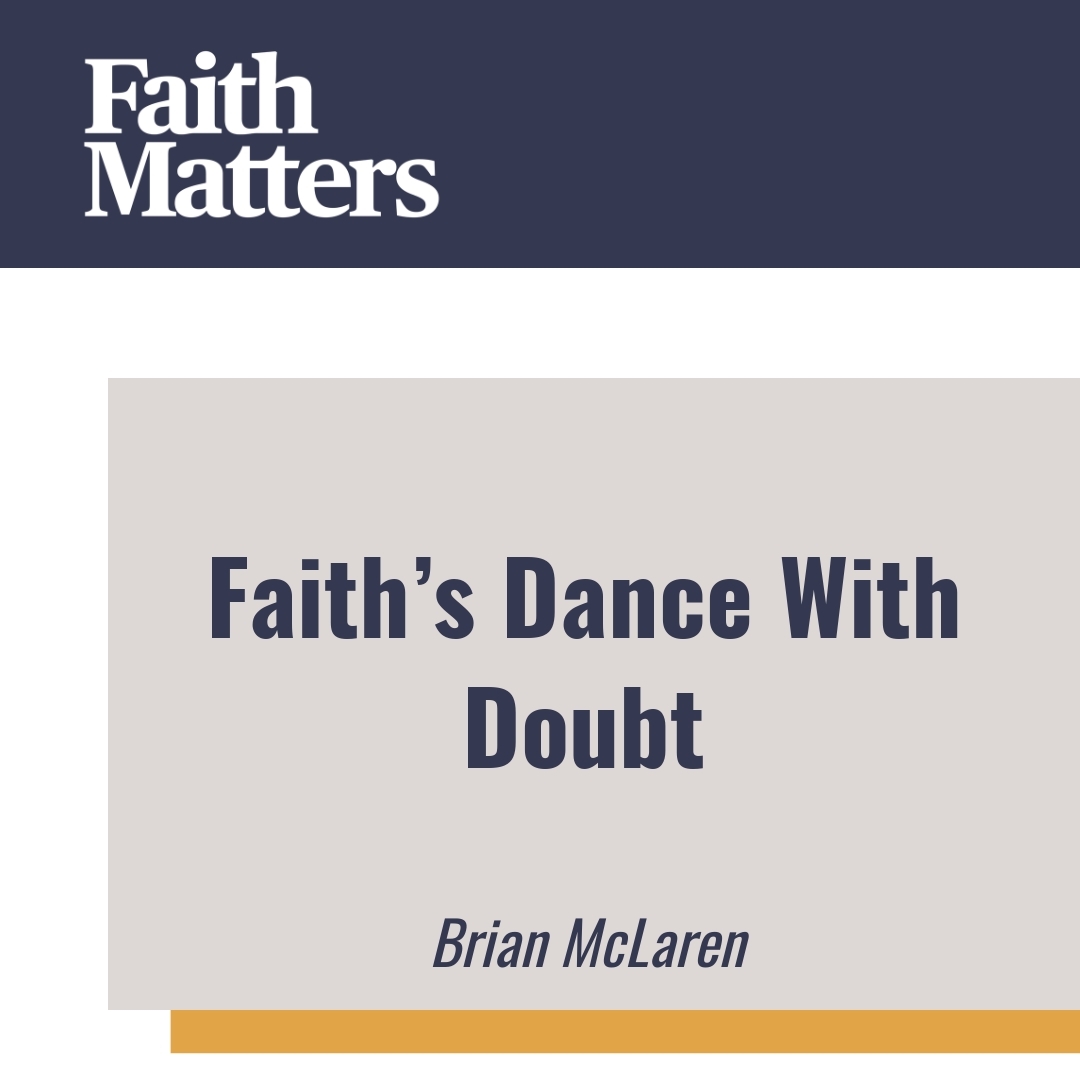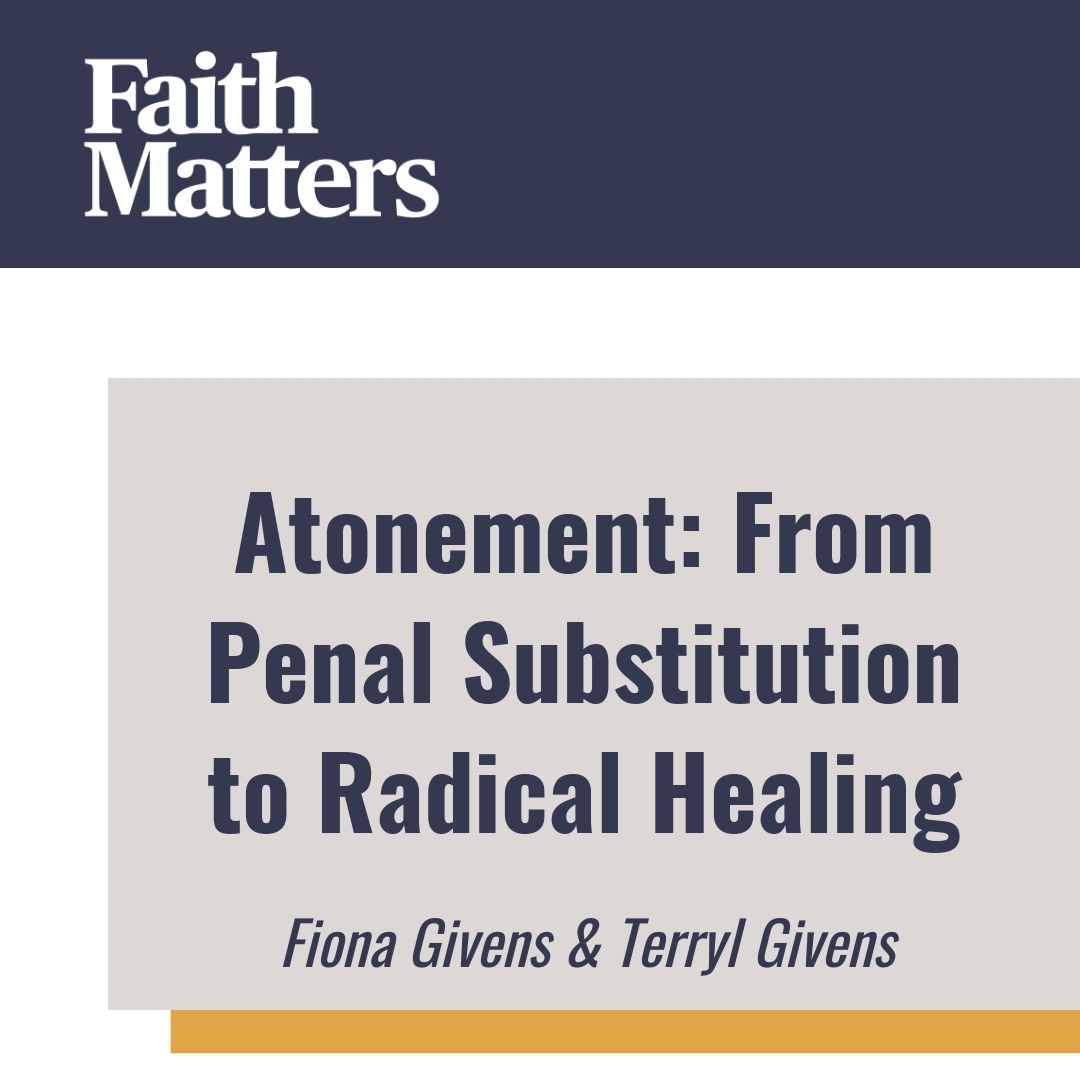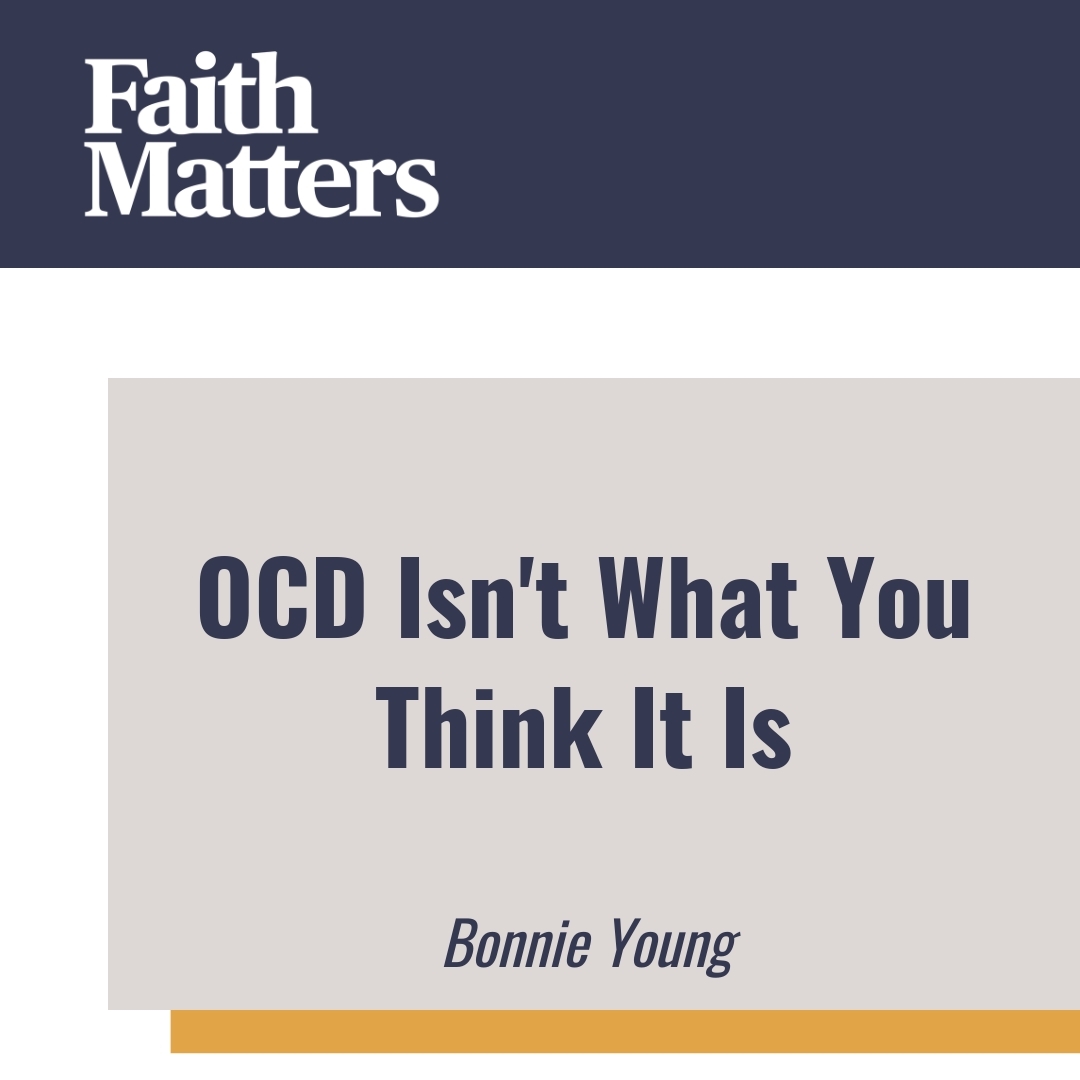Faith Matters offers an expansive view of the Restored Gospel, thoughtful exploration of big and sometimes thorny questions, and a platform that encourages deeper engagement with our faith and our world. We focus on the Latter-day Saint (Mormon) tradition, but believe we have much to learn from other traditions and fully embrace those of other beliefs.
Today, we’re doing something a little different — we’re going to be sharing a chapter from Patrick Mason’s new book, Restoration. The chapter we’re sharing lays out Patrick’s thesis for what the word “restoration” meant in its original sense — and how that meaning is incredibly relevant for the many members of the Church who are longing to engage with the world and lift up its most marginalized and vulnerable. We’ll get right to it and turn it over to Patrick, but we wanted to wish everyone a happy Memorial Day weekend, and we hope you enjoy this chapter from Restoration.
Earlier this month, we reached out to our followers on social media to get their thoughts and questions about returning to a full church meeting-schedule after a year of home-centered worship and gospel study. We weren’t entirely surprised that there is a high level of interest in the subject. Many of the questions seemed to hinge on the tension between belonging and boundaries.
The disrupted church schedules we’ve experienced over the past year have taught us all a lot about our worship practices, our church relationships, and ourselves. Now that many of us are starting to get back to a more standardized, full-meeting schedule, there are as many different feelings as there are people: some are excited and can’t wait to go back, and others are more reluctant.
This week, we’re excited to celebrate Mother’s Day in a way that’s a bit unique to our tradition by talking a bit more about our Heavenly Mother.
Those fortunate to have come into the orbit of Tom Christofferson have found a wise, genuine and compassionate friend. His first book That We May Be One: A Gay Mormon’s Perspective on Faith and Family was instrumental in healing many hearts and building many bridges. In his new book A Better Heart, Tom dives deeper into his journey toward the kind of Christ-like love to which we aspire as disciples. Tom sat down with Aubrey and Tim Chaves this week to talk about the spiritual journey that led to his latest book.
This is part 2 of our last episode on President Dallin Oaks’ recent conference address, in which spoke passionately about the U.S. Constitution, and ended with an urgent admonition to end political tribalism and division.We collaborate in this episode with Kurt Francom of Leading Saints, which is a really remarkable organization that helps Latter-day Saints be better prepared to lead.
President Dallin H. Oaks delivered a landmark address at our church’s most recent General Conference. He spoke passionately about the U.S. Constitution, and ended with an urgent admonition to end political tribalism and division, insisting that we address this in our wards and stakes.In this episode, Faith Matters co-founder Bill Turnbull reached out to his good friend, Thomas Griffith, an expert in constitutional law, to explore not just Pres. Oaks address, but what lies behind it—the rapid erosion of good will and trust in the American body politic—including among Latter-day Saints.
In this conversation, we spoke with Brian McLaren about his new book, Faith After Doubt. Brian is a former evangelical pastor, bestselling author, speaker, and podcast host, whose ideas we found to be extraordinarily resonant for our own faith tradition.In this most recent book and in the interview, Brian shares his own experience passing through periods of deep doubt and shares how those experiences have been key for him to unlocking a greater sense of simplicity, integration and harmony in his life.
For this Easter holiday, we wanted to do something a little different — so today, we’re sharing a chapter from the audiobook version of Fiona and Terryl Givens’ new book, All Things New, which was published by Faith Matters. The chapter is titled “Atonement: From Penal Substitution to Radical Healing.”It may be the most important chapter in the book. They walk us through the history of poorly translated texts and a medieval worldview that really emphasized a jealous, angry, and retributive God, and then Fiona and Terryl show how we’ve been passed this conception of Atonement that focuses on being “saved,” rather than being “healed.”
In this episode, we talked about OCD and scrupulosity. OCD is a difficult subject because the term is often thrown around as an adjective to describe perfectionistic tendencies. But true obsessive compulsive disorder is so different than the stereotypes may lead people to believe, and it can be a really serious mental health issue — one that is undoubtedly affecting someone you know and love.

